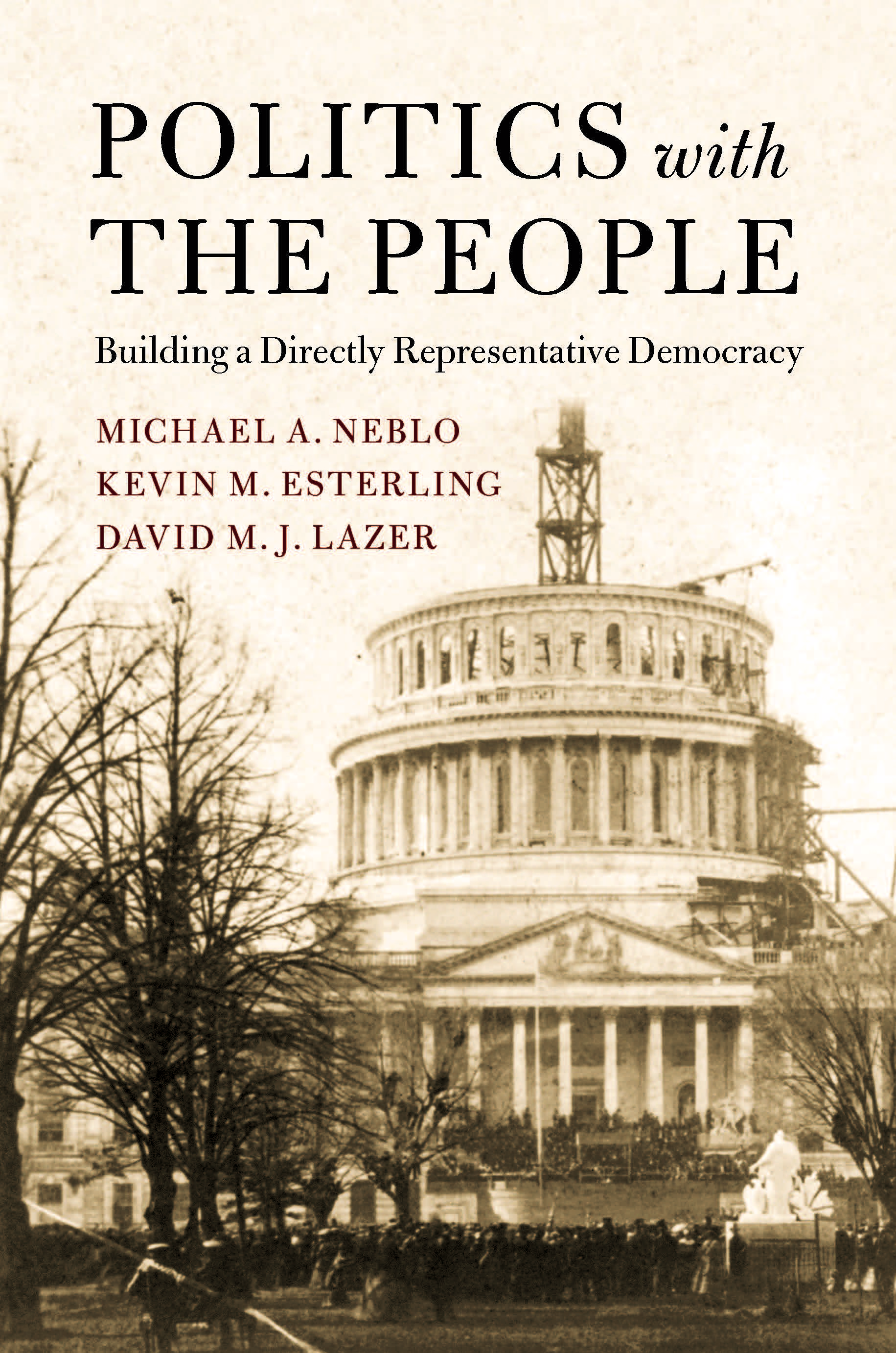Background
Connecting to Congress builds on the groundbreaking constituent engagement research
our team documented in their recent book, Politics with the People: Building a Directly Representative Democracy.
“How I wish this tool had been available when I served in Congress –it could finally change the tenor of our public debate and at last include citizens into Congressional decision making in a meaningful way.
This process could begin to restore America’s trust in its government and representative’s accountability
to their constituents.”
“A breakthrough book, conceptually and practically… A must read.”
Why all the praise?
Quite frankly, because Politics with the People is a book for this moment. Congressional staffing levels have been continuously cut since the 1990s, while the amount of communication staff are expected to handle has increased more than tenfold. Advocacy groups have weaponized traditional opportunities for constituent engagement. And yet, with more ways than ever to communicate their views to their representatives, most citizens say they have never felt less able to make a difference. This disconnect makes it much more difficult to engage the broad public whose support is necessary on tough policy choices, contributing to a widespread loss of trust in government and potentially undermining the legitimacy of government and its actions.
In 2006, thirteen sitting members of Congress – frustrated and dissatisfied with status quo politics and limited opportunities for constituent engagement – agreed to work with a team of political science researchers and groups of their constituents on a set of unprecedented field experiments.
The team developed a way of combining the then-emerging tele-townhall technology with “deliberative” principles to help strengthen the strained lines of communication and trust with their actual constituents. The deliberative principles that formed the basis of these experiments were:
diversity—seeking to include a truly representative sample of the constituents, not just “the loudest voices in the room”
non-partisanship—using frameworks organized around values rather than party platforms
quality—participants had to consider tradeoffs, respond to the views of others, and give reasons for their views
authenticity—participating Members were encouraged to be candid and responsive to questions, rather than giving a speech or presenting an infomercial.
“It may well be one of the most important books on democracy and representation
in decades.”
“The authors provide a potentially game-changing approach for reducing the polarization that paralyzes Washington. Well-written and meticulously researched, this book is a must-read for anyone interested in realistic and workable solutions to congressional dysfunction.”
The results were startling.
Using random sampling, control groups and other methods, the research team was able to prove conclusively that:
These online deliberative sessions attracted every kind of citizen—the citizens who voluntarily participated in these deliberative were more representative of the country than the electorate.
Deliberative events offer lawmakers a chance to reach beyond “the usual suspects”—in fact, they particularly attracted citizens who tend not to follow politics or who have become disenchanted with the system. Furthermore, after participating, these citizens became more likely to vote and take part in political discussions.
The design of the deliberative events—with participants reviewing non-partisan back materials and engaging in deliberation guided by impartial facilitators—resulted in high-quality, informed conversations, not talking points and simplistic arguments.
Participating in these deliberative sessions significantly increased citizens’ trust in government.
Participants surveyed four months after the deliberative event were 10% more likely to vote for the representative that engaged with them
in this way.
Politics with the People comprehensively documents these findings, and, just as importantly, offers a realistic vision for making them a mainstream part of our political system.
Connecting to Congress is our initiative to learn how to do that as effectively as possible.
